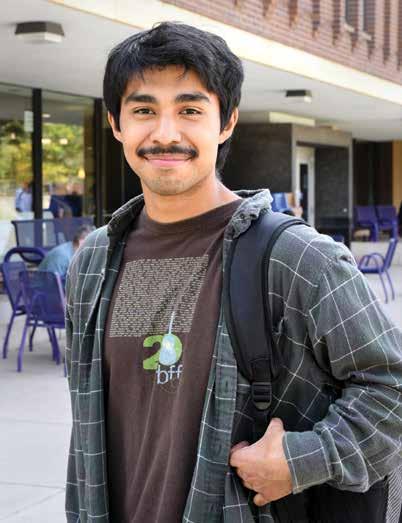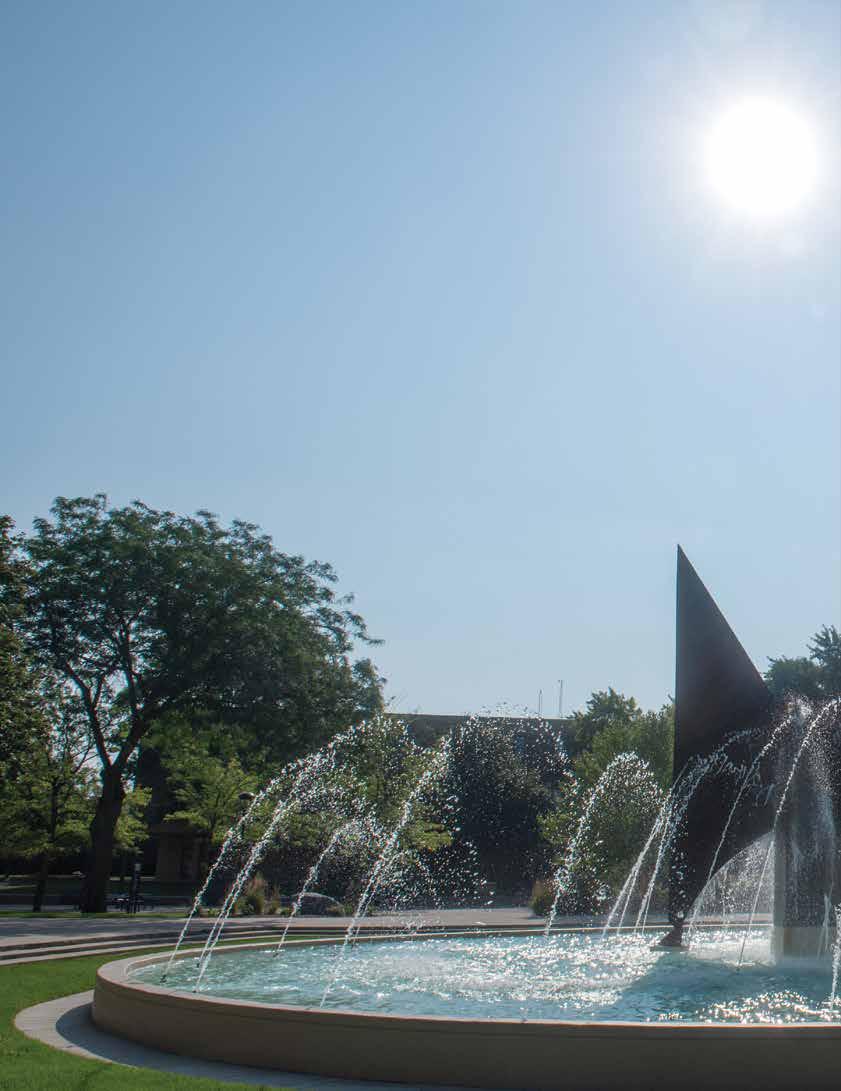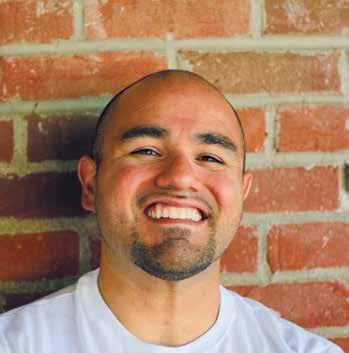
4 minute read
1ST GENERATION GRADUATES


Interviews echo experiences for students
By Robb Murray '95
When recent graduate Jerry Rideout ’22 was asked to participate in a project to create a resource for first-generation college students, he was more than happy to sign on. As a first-gen student himself he knew the challenges such students face and wanted to be a part of an endeavor to help. What he didn’t know was that, as he interviewed the project’s subjects—first-gen college students who went on to successful careers—he’d make a meaningful connection with someone whose experience mirrored his. Among the people he interviewed was Chris Brown, recently named Minnesota State Mankato’s Dean of the College of Humanities and Social Sciences. “I’ve got so much love and admiration for the man so it was nice hearing a little bit more of his story on what inspired him, what made him want to keep pushing himself through academics and some pitfalls,” Rideout said. Said Brown, “We really connected and bonded on our experiences in college life and in trying to figure out how to succeed as college students. Our conversation really centered around some of those barriers, those obstacles that we overcame.” That exchange, with Rideout gaining perspective from a fellow and former first-gen student, is exactly the kind of connection the project’s creators hoped would happen. Rideout’s interview with Brown will be included in a proposed podcast series tentatively titled “Finding Your Place: Stories of Cultural Wealth and Resilience.” It’s the third collaboration for communications studies professor Dave Engen and Century College Communications professor—and Minnesota State Mankato alum—Robert Jersak ‘07.
’86Jose Felipe Ozune (left) interviewed creative writing instructor Michael Torres (right) for the project.
For a communications project, Jerry Rideout (left) interviewed a fellow first-generation student of color: Chris Brown (right), Dean of the College of Humanities and Social Sciences.



They first worked together in 2014 on a project of recordings and photos documenting the thoughts and voices of incoming college students at Century College. Their second project was a podcast called “Finding Your Place,” which consisted of 12 student-produced episodes on topics ranging from overcoming fear in college to finding a mentor. That project was so well received that it’s still used system-wide in first-year seminar classes. This third collaboration features the complex stories of first-generation students who have graduated college. Also a podcast, the hope is it will provide encouragement and enlightenment to those just getting started. In line with Minnesota State’s Equity 2030 initiative, the podcast will primarily feature stories from individuals of color along with several stories of white graduates from working-class backgrounds, Engen said. “The previous podcast focused on specific topics in college, like how to talk to professors,” Engen said. “The new podcast will focus on the life stories and strengths of individuals like Dr. Brown who were first-generation students and are now successful professionals.” Part of the reason they chose to work on this third collaboration was the void they saw in the information given to first year students. “We wanted to do a project where students got longer and more complex personal stories about individuals who experienced success and struggle in college,” Engen said. “Our hope is new students might use these stories to help make sense of their own college experiences” The interviews forming the heart of the podcast have been conducted by student producers hired by Engen and Jersak with an innovation grant from Minnesota State. Having student producers conduct interviews is leading to some meaningful connections between the student producer and individual featured. For example, student Jose Felipe Ozune interviewed Professor Michael Torres, a faculty member in Minnesota State Mankato’s creative writing program and a poet. Jose is also a poet and, along with exploring the life of Torres, was able to reflect more on his own desires to pursue creative writing. Rideout has finished his graduate program and is now employed with the University’s Residential Life department. He said he’s thankful for the opportunity to connect with Brown and that the project will be beneficial for anyone looking for a brand of guidance they can’t get from their families. “The project gives them hope,” Rideout said. “Lets them know there's somebody out there that's doing it and doing it well. Not only did they do it, but they did it and they’re still prospering. So hopefully, it will give them the hope that they maybe didn't have coming in.”



